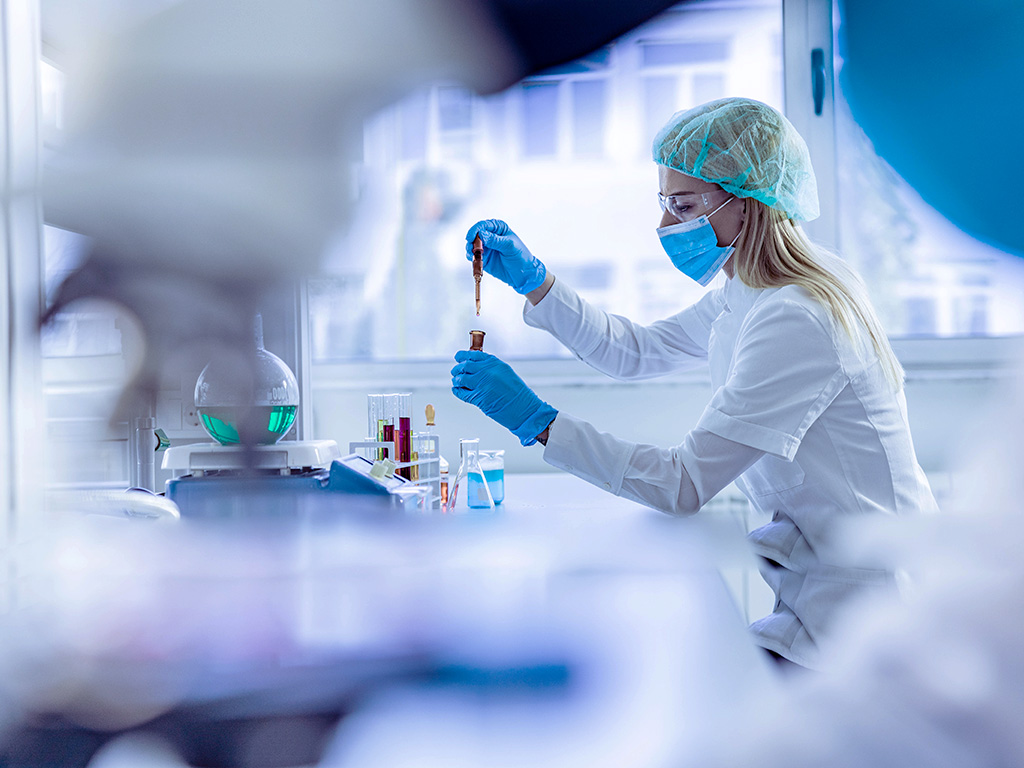CTCs accurate predictor of chemotherapy resistance

Liquid biopsy tests before and during chemotherapy can accurately detect whether patients with prostate cancer are resistant to treatment with anti-cancer drug docetaxel, scientists have found. By analysing a blood test for circulating tumour cells (CTCs), researchers were able to identify patients who are resistant to docetaxel treatments. Identifying patterns in the data can predict patient survival by assessing the number and type of cells in the bloodstream.
Docetaxel is a common treatment prescribed to men whose prostate cancer has spread, but it’s not always effective. If resistance is identified early, patients can be prescribed abiraterone or cabazitaxel as alternatives, but to date, no accurate test for resistance exists.
In research presented at the NCRI Festival, Ms Caitlin Davies, a PhD research student at Barts Cancer Institute, Queen Mary University of London, describes how analysis of CTCs in the bloodstream of patients provided a reliable indicator of Docetaxel resistance. The team analysed blood samples from 56 patients receiving treatment at St Barts. Samples were taken at several points, including when they started treatment, after five months and when the treatment ended.
“Our ability to collect and analyse CTCs before, during and after treatment meant that we could monitor changes in CTCs in response to treatment,” said Ms Davies. “We then looked for patterns in the data from men who responded or did not, or whose disease progressed sooner than others after treatment.”
Researchers discovered that the presence of CTCs in the blood (at a concentration of six CTCs per 7.5mL of blood) before treatment were more likely to be resistant to treatment with docetaxel and had a higher chance of death. Conversely, those with fewer than six CTCs per 7.5ml of blood had a “progression-free survival of 17 months” and a longer survival time.
The research provides more evidence for the potential of liquid biopsies to identify how patients respond to cancer treatments, improving outcomes. “Using these patterns, we can apply them to future patients with the goal to predict whether they will respond to therapy and pre-emptively decide on the best course of action that will have maximal benefit,” said Ms Davies.
Liquid biopsies are quicker, easier, and less invasive than other methods, says Ms Davies. “It is minimally invasive, painless and easily repeatable, so patients can avoid undergoing painful tissue biopsies. It takes a matter of minutes for the patient, and we can get results within two to three days.” She hopes to validate the findings further and potentially undertake clinical trials in the future.
RGCC is at the forefront of personalised cancer testing. Our ChemoSNiP test can identify DNA variations, known as single nucleotide polymorphisms, that determine how our body’s respond to cancer treatments. The test provides clinicians with crucial insights that they can use to shape cancer treatments that have the best chance of success.
You can learn more about our range of genetic tests that can help improve the diagnosis and treatment of cancers here.
You can read the abstract, Circulating tumour cell analysis to evaluate docetaxel treatment response and resistance markers in prostate cancer, here.

